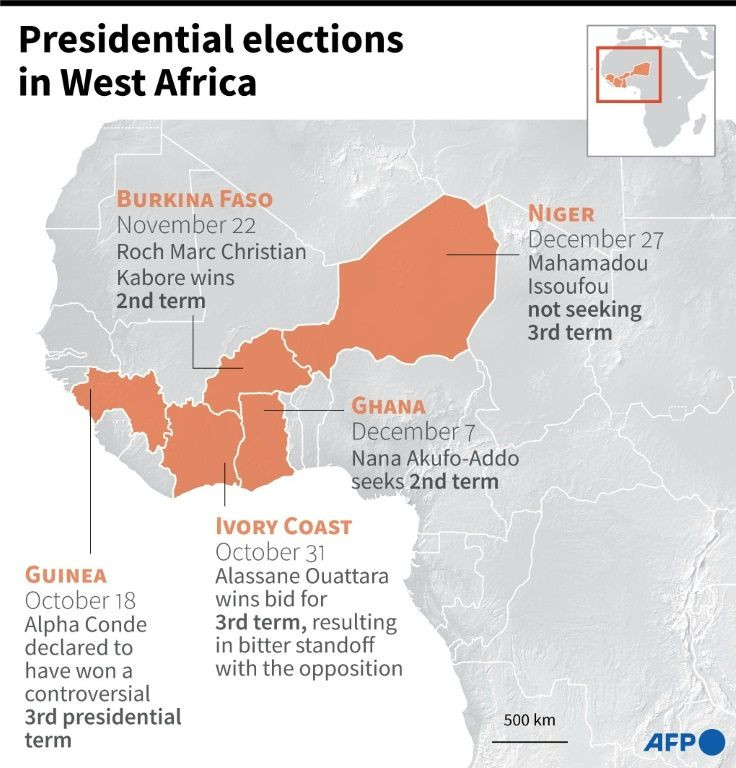Burkina's Kabore Says Opposition Leader Congratulated Him On Victory
Burkina Faso's President Roch Marc Christian Kabore said Friday he had received the congratulations of the leader of the opposition, a day after official results showed he was re-elected by a landslide.
Ahead of the election, international diplomatic efforts had stepped up to prevent any possible flare-up in the country -- among the poorest in the world -- and which is struggling with a long-running jihadist campaign.
Kabore won a large outright majority in the first round of the presidential election on Sunday, removing the need for a runoff ballot, the Independent National Electoral Commission (CENI) said.
"I have received on Friday evening the congratulations of the presidential candidate, Zephirin Diabre," Kabore, 63, wrote on Twitter.
"I salute his approach which is in line with the republican spirit of our political class," he added, accompanying his tweet with a photo of the two.

When the CENI announced Kabore's landslide victory on Thursday, the opposition had said it "reserved the right" to challenge the results.
Diabre's Union for Progress and Change (UPC) said on its website before Kabore's tweet it wished to "point out the major shortcomings" which had "marred" the ballot.
However, "considering the difficult situation our country is going through" it reaffirmed its "renewed desire to always preserve peace, stability and security in Burkina Faso by placing the interest of the nation above all other considerations".
One of the poorest countries in the world, Burkina Faso is struggling with a jihadist campaign that has claimed at least 1,200 lives since 2015 and forced around a million people to flee their homes.

Because of the unrest, the election was not held across at least one-fifth of the territory.
The closure of some 1,300 polling stations reduced the potential pool of voters from 6.49 million to 5.89 million in a population of 20 million, according to CENI.
Around 800 other polling stations that should have opened remained closed.
Pro-Kabore parties had argued that all candidates were equally affected and that in any case the closures were not on a scale to have any major impact on the result.
Eddie Komboigo, the champion of ousted president Blaise Campaore's party, came second in Sunday's vote with 15.48 percent of the ballot.
He was followed in the 13-candidate field by Diabre, who had been considered by pundits to be the best-placed opposition hopeful, with 12.46 percent of votes cast.
Kabore was the favourite in the election despite being under fire for what critics say has been a lacklustre response to the five-year-old jihadist insurgency that has rolled in from Mali.
By winning an overall majority in the first round he avoids a runoff vote in which he would have had to stand against a single candidate backed by a united opposition.
But opposition parties said the vote was marked by fraud and flawed procedures, and had been threatening to reject "results stained by irregularities".
Tahirou Barry, a former minister who came fifth, had said earlier that the CENI "reserves the right to use legal recourse to address irregularities identified".
The elections on Sunday were for Burkina's legislature as well as its presidency, where executive power in the former French colony is concentrated.
© Copyright AFP {{Year}}. All rights reserved.





















